Fraud case against Putin opponent Navalny falters
- Published
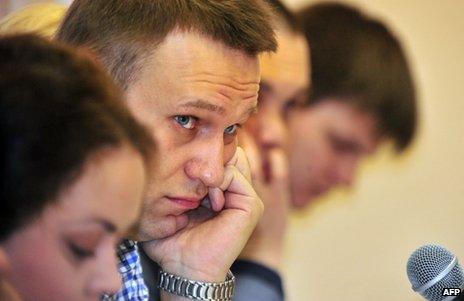
Alexei Navalny is being tried on the first of several fraud cases
Russian opposition leader Alexei Navalny has accused a key witness at his fraud trial of false testimony after the witness contradicted himself.
He quizzed Vyacheslav Opalev after the former head of Kirovles said he had been forced by Mr Navalny to buy timber at artificially low prices.
Mr Opalev said previously he had colluded with Mr Navalny. He denied lying and said he was "stressed".
Meanwhile, President Vladimir Putin denied persecuting the opposition.
Asked during a presidential phone-in in Moscow about the Navalny case and the Pussy Riot trial, he said there were no political prisoners in Russia and nobody was prosecuted for their politics.
In the city of Kirov, 900km (560 miles) north-east of the Russian capital, Mr Navalny has been defending himself against the accusation that he embezzled 16m roubles (£300,000; $500,000) from Kirovles, in Russian four years ago.
The 36-year-old anti-corruption campaigner, who inspired mass protests against the Kremlin in December 2011 and has declared he would like to stand for president, faces up to 10 years in prison if convicted.
He has accused Mr Putin of ordering the prosecution in a bid to end his political career.
'Squeezed out'
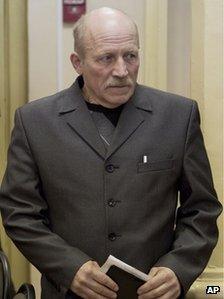
Vyacheslav Opalev is the former director of Kirovles
Prosecutors accuse Mr Navalny of embezzling the money while acting as an adviser to Kirov's governor, Nikita Belykh.
After listening to Mr Opalev, the prosecutor told the court he had made a "number of contradictions in giving evidence".
Struggling to answer detailed questions from the prosecutor and Mr Navalny alike, Mr Opalev eventually asked the court to consult his written testimony and not his responses on Thursday.
The former director of Kirovles said he might have forgotten things because he was "under stress".
Interrogated by Mr Navalny, he burst out, "You are driving me mad!", provoking laughter in the courtroom, according to a running account of the proceedings on the gazeta.ru news website.
Mr Navalny shot back: "But I am the defendant!"
The opposition leader accused his accuser of having given false testimony in return for prosecutors dropping criminal charges against himself. Mr Opalev denied this.
On Wednesday, Mr Navalny insisted on his innocence, telling the court: "The most important purpose of this case is to squeeze me out of the legal political arena."
'Outsiders'
Mr Putin did not speak of Mr Navalny by name when he denied that opposition activists were being persecuted in Russia.
He played down the significance of opposition forces from "outside the system", in an apparent reference to the non-parliamentary movement inspired by Mr Navalny.
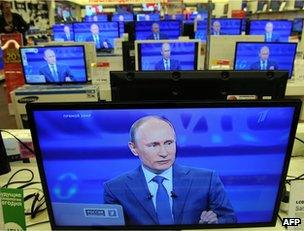
Mr Putin's phone-in was broadcast live on television
"I think this idea of an opposition from outside the system will become a thing of the past," he predicted.
The three-time Russian president, 60, broke his own time record during his 11th live phone-in since first taking power 13 years ago.
He took questions for four hours and 47 minutes, on topics ranging from the state of Russia's roads to the crimes of Stalin.
He called for better co-operation with the US against terrorism after the Boston Marathon bombing, which was blamed on two ethnic Chechen brothers.
However, he also accused Washington of arrogance over the Magnitsky List, which targets Russians involved in the 2009 prison death of anti-corruption whistleblower Sergei Magnitsky.
- Published24 April 2013
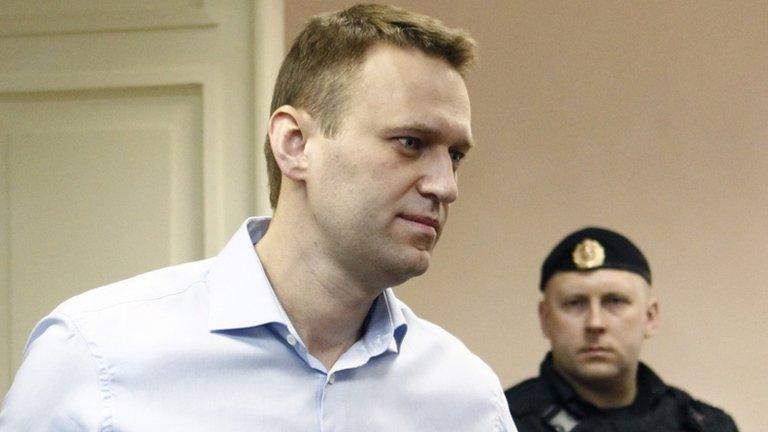
- Published17 April 2013
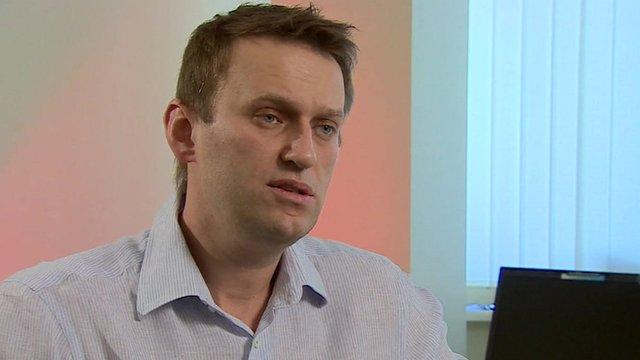
- Published16 February 2024
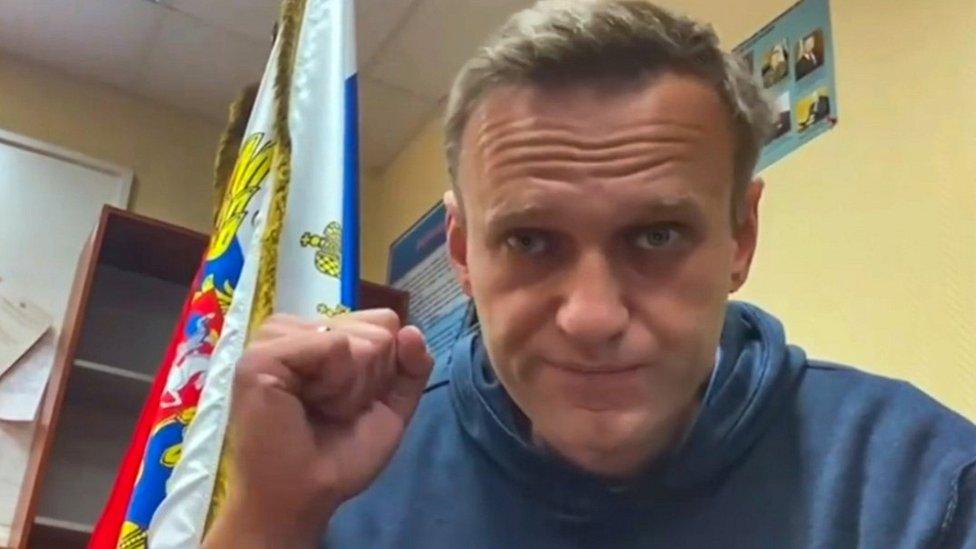
- Published20 February 2013
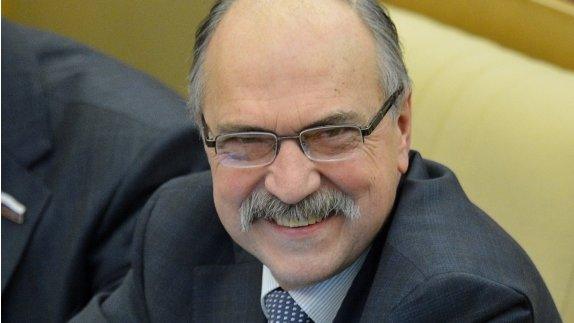
- Published25 March 2024
